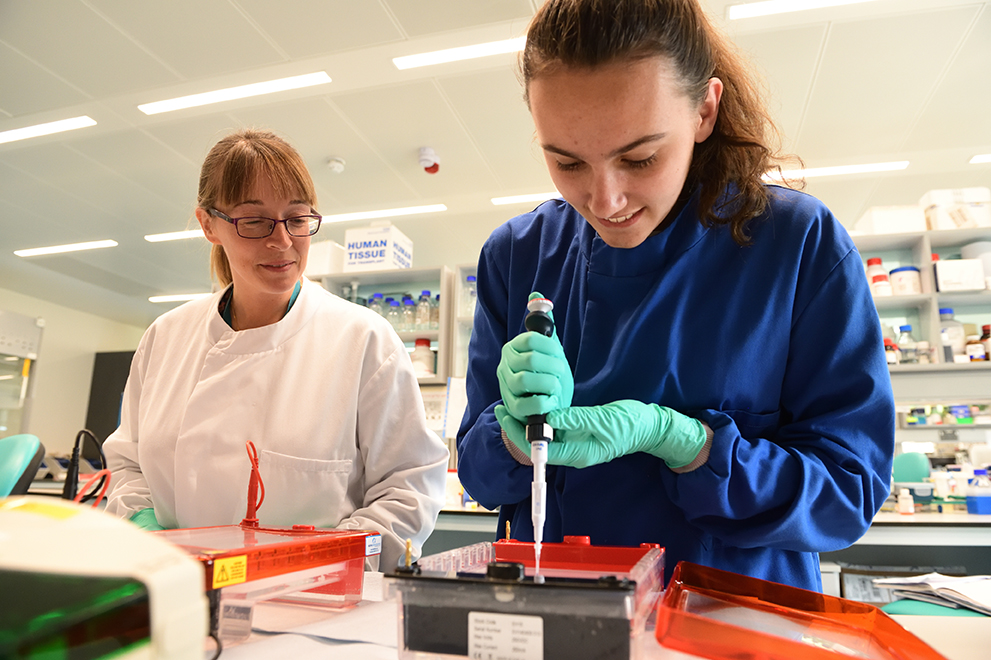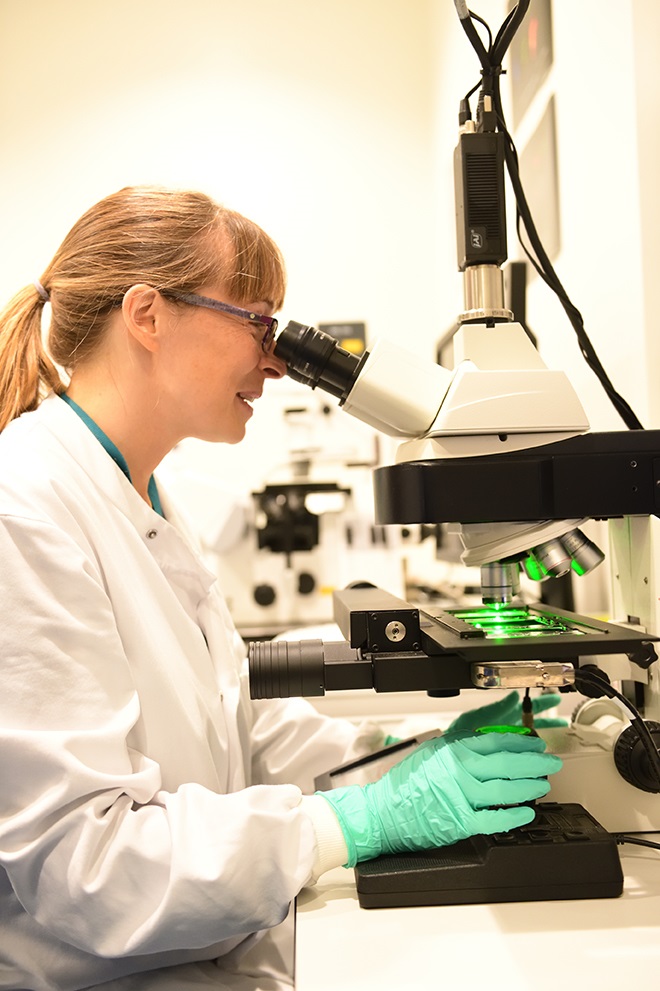Provincial Grand Lodge of Norfolk impact report, June 2022
Thank you for supporting research to transform diagnosis and treatment of prostate cancer.

Biomarker tests
'It can show us which people at intermediate risk may require treatment and which may be managed with surveillance.' - Dr Jeremy Clark, research lead for Prostate Urine Risk
Prof. Colin Cooper's team is developing a suite of urine biomarker tests. These non-invasive tests can:
- Identify which cancers are likely to become aggressive up to 5 years before they do.
- Determine the risk the cancer poses to the patient.
- Help clinicians decide whether treatment is needed
A paper on one urine biomarker test, Exograil, was published in April 2021 to worldwide interest. Since then, work on the Exograil test has been halted temporarily to focus on developing the Prostate Urine Risk Test (PUR), another urine biomarker test. Thanks to a study partly funded by the Provincial Grand Lodge of Norfolk and published in November 2021, there has been a major breakthrough.
Previously, the PUR test could identify those with high-risk cancers, which need immediate treatment, and low-risk cancers, which do not usually need treatment. the PUR test can now also help those with intermediate-risk cancers.
The new study found that the PUR test correlates with the amount of aggressive Gleason pattern 4 cancer in the prostate. By measuring Gleason patter 4, and monitoring the rate at which this aggressive cancer develops, the test provides information that could aid treatment decisions for those at intermediate risk.
'It can show us which people at intermediate risk may require treatment and which may instead be managed conservatively with surveillance', lead researcher Jeremy Clark explains. 'Around half of those diagnosed with prostate cancer fall into this intermediate risk group and the treatment pathways for them has been less clear, until now.'
The improved test is now being validated in a larger-scale study across multiple sites. Thanks to your support, we are getting closer to the day when tests like the improved PUR can be made available worldwide.
Discovery: Bacteria linked to aggressive prostate cancer
'We found several types of bacteria associated with aggressive prostate cancer, some of which are new types of bacteria never found before.' - Dr Rachel Hurst, research lead of bacterial infections and role in prostate cancer.

UEA's prostate cancer research team have discovered a link between bacteria and aggressive prostate cancer.
A paper published in April 2022 identified five types of bacteria which were common in the urine and tissue samples from people with aggressive prostate cancer, including some previously undiscovered species of bacteria.
The team also identified potential biological mechanisms of how these bacteria may be linked to cancer.
This is a new discovery, meaning much more research is needed to unlock its potential treatment options, Dr Rachel Hurst explains:
'Among the things we don't know is how people pick up these bacteria, whether they cause the cancer, or if a poor immune response permits the growth of the bacteria.
'But we hope our findings and future work could lead to new treatment options that could slow or prevent aggressive prostate cancer from developing. Our work could also lay the foundations for new tests that use bacteria to predict the most effective treatment for each person's cancer.'
The difference support makes
'If we can target aggressive cancers while sparing others from unnecessary treatment it will dramatically improve the way we manage this disease.' - Prof. Daniel Brewer, bioinformatics team lead
Tests like PUR could spare millions from unnecessary, life-altering surgeries, and allow people needing treatment to get it sooner. Discoveries like the bacterial link to prostate cancer pave the way for better tests for prognosis and better treatment for patients.
Prof. Colin Cooper, UEA prostate cancer lead, gives his heartfelt thanks for your support: 'The work of UEA's prostate cancer team is only possible because of donors. We can't thank you enough for the part you're playing in this transformative research'
Making a world of difference at UEA
UEA's philanthropic community enables the University to create pioneering change in the world.
We are harnessing the power of philanthropy to fund and further the University's groundbreaking work, adding global reach and impact. Together, we tackle the world's greatest challenges and transform lives.
The funding you provide is put to work on visionary research, education, campus development, student support and much more. Thank you for helping to make a difference.
How to give
If you would like to get involved, please donate online at www.uea.ac.uk/difference
Or, to discuss your gift, please get in touch with the Development Office.
Telephone: +44(o)1603 592 945
Email: [email protected]
Development Office
University of Anglia
Norwich Research Park
Norwich
NR4 7TJ
Photo Credits: UEA - University of East Anglia


